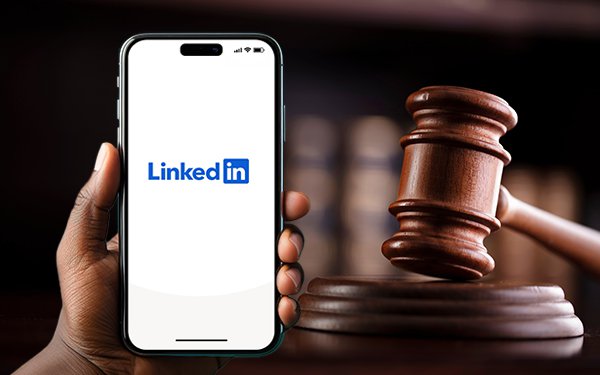
Siding against LinkedIn, a federal judge
refused to dismiss a class-action complaint claiming that the company violated a federal video privacy law by allegedly sharing a subscriber's personally identifiable video-viewing history with Meta
Platforms.
In a decision issued Monday, U.S. District Court Judge P. Casey Pitts in the Northern District of California essentially ruled that the allegations against LinkedIn,
if proven true, could support a finding that the company ran afoul of the Video Privacy Protection Act.
The ruling comes in a lawsuit brought in February by Courtney Cole, a
LinkedIn Premium subscriber who alleged that the company disclosed her Facebook ID to Meta, via its tracking pixel, and disclosed that she viewed the LinkedIn Learning course “Nano Tips for
Negotiating Your Salary with Sho Dewan.”
advertisement
advertisement
Cole also alleged that Meta's records of her off-site activity show that LinkedIn revealed her video-viewing history to Facebook
on October 11, 2023 -- the same date she viewed the LinkedIn Learning video.
Cole is one of numerous web users who have recently sued online companies for allegedly
transmitting information to Meta through its pixel.
LinkedIn had urged Pitts to throw out the lawsuit at an early stage for several reasons. Among others, LinkedIn argued that
its wasn't covered by the Video Privacy Protection Act because its primary business doesn't involve displaying videos. The Video Privacy Protection Act, which dates to 1988, prohibits "video tape
service providers" from disclosing consumers' identifiable viewing history, without their consent.
LinkedIn argued in papers filed with Pitts in April that it only makes
"ancillary use" of videos, and therefore shouldn't be considered a "video tape service provider."
"LinkedIn is a professional networking site making ancillary use of
audiovisual materials, like every other modern business with a meaningful internet presence," the company contended.
Pitts rejected LinkedIn's argument for now, writing that
other judges in the Northern District of California have allowed plaintiffs to proceed with video privacy claims against companies, as long as the complaints in those matters alleged that the
companies regularly deliver video content.
Judges in other jurisdictions -- including the 6th Circuit Court of Appeals and D.C. Circuit Court of Appeals -- have taken a narrower view of the Video Privacy Protection Act. The Supreme Court hasn't yet
weighed in on the matter.
LinkedIn also argued to Pitts that Cole's allegations, even if proven, wouldn't show that it shared the kind of data that would allow a "reasonable
ordinary person" to link Cole's video-watching history to her identity.
Cole's attorneys countered in a written filing that anyone can identify a Facebook user "by appending
the Facebook ID to the end of facebook.com.”
Pitts sided against LinkedIn on that point, at least for now. He wrote that Cole's complaint "plausibly alleged that LinkedIn
disclosed her personally identifiable information by transmitting the URLs of videos Cole watched on LinkedIn Learning 'along with' her Facebook ID," and that this information, taken together, would
"readily permit an ordinary person" to identify Cole's video-watching behavior.
The ruling is only preliminary, and Pitts said in the decision that some of LinkedIn's arguments
raised factual questions that would be dealt with at a later stage of the proceedings.